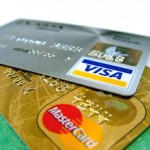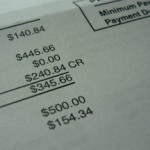A credit report is a type of consumer report that contains certain personal information about you. This information includes where you work, where you live, and your history of paying your bills. Your report may also show whether or not you’ve missed credit payments, filed for bankruptcy, been sued, or been arrested.
Businesses are allowed by law (the Fair Credit Reporting Act) to use your credit report when evaluating your applications for credit, insurance, and employment, among other reasons. A court of law can subpoena your report, and child support enforcement agencies can also be given your credit report to determine appropriate child support payments. Other people, such as potential investors, with a legitimate business need to review your credit report can also be given it.
There are three major national credit bureaus: Equifax, Experian, and TransUnion. Each bureau will have a different credit report for you, which may include slightly different information.
Checking your credit report is important. By checking your credit report periodically, you could catch errors or omissions that—left on your report—would hurt your credit or prevent you from getting credit. In addition, checking your report helps guard against identity theft. If you catch these inaccuracies in advance, you can correct them and speed up the process to getting credit. You should check your report once a year as well as before making major purchases, such as a car or house.
The Fair Credit Reporting Act requires that consumers be able to request a free credit report once every year from all three major national credit bureaus. To order your free credit report, visit http://annualcreditreport.com, call 1-877-322-8228, or fill out the Annual Credit Report Request form and mail it to:
Annual Credit Report Request Service
P.O. Box 105281
Atlanta, GA 30348.
Note that http://annualcreditreport.com is the only website authorized by the federal government to give out free credit reports. Beware of websites, advertisements, email offers, and companies other than the three major credit bureaus (listed above) that offer “free” credit reports: many of these offers will require you to buy something before getting your report or even could be identity thieves trying to get your information.
You can also get a free credit report if your report is inaccurate, if you’re unemployed and plan to seek a job within 60 days, and if you’re on welfare. If a company denies you credit, insurance, employment, etc. based on information from your report, you can also obtain your report if you request it within 60 days.
To get your credit report from the three companies above, you’ll have to provide your name, address, Social Security number, and date of birth. Each company will ask you questions that only you should know to prove your identity. When you’ve given your information and answered the security questions, you can print out your credit report (if you requested it online), or it will be mailed to you within 15 days.








Speak Your Mind